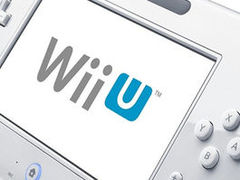Video Gamer is reader-supported. When you buy through links on our site, we may earn an affiliate commission. Prices subject to change. Learn more
Nintendo has begun discussing its strategy for its next-generation consoles beyond Wii U and Nintendo 3DS, revealing that it hopes to build an architecture that allows the firm to “make software assets more transferable” between either device, and avoid the software shortages it’s seen with its current-generation platforms.
Development on the architecture for the future platforms began last year, president Satoru Iwata announced during the firm’s Q3 financial results briefing last night, and the intention, it seems, is for future Nintendo titles to be compatible with either console.
“Last year we also started a project to integrate the architecture for our future platforms,” said Iwata. “What we mean by integrating platforms is not integrating handhelds devices and home consoles to make only one machine. What we are aiming at is to integrate the architecture to form a common basis for software development so that we can make software assets more transferrable, and operating systems and their build-in applications more portable, regardless of form factor or performance of each platform.”
Iwata’s comments suggest that Nintendo hopes to be able to build the same games for both its next-generation home console and handheld device.
“They will also work to avoid software line-up shortages or software development delays which tend to happen just after the launch of new hardware,” Iwata added.
“Some time ago it was technologically impossible to have the same architecture for handheld devices and home consoles and what we did was therefore reasonable.”
The decision to share games between home and handheld consoles could shake up the industry.
Until now, the differences in technical capabilities between home and handheld consoles have forced publishers and developers to prepare individual titles for either market.
“Although it has not been long since we began to integrate the architecture and this will have no short-term result, we believe that it will provide a great benefit to our platform business in the long run,” Iwata continued.
It all seems a bit too early for Nintendo to be discussing a successor to Wii U, of course. The console only launched in the UK in November. But with sales of the console failing to maintain momentum, could Nintendo be looking to move onto the next-generation sooner rather than later?
Source: Nintendo Corporate Management Policy Briefing/Third Quarter Financial Results Briefing
